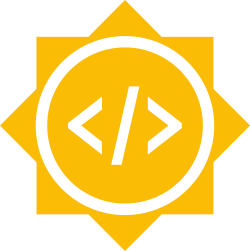
The Fedora Project has represented the Google Summer of Code program for ten years and we are participating in the 2016 program as well. This wiki page serves as the GSoC portal. Please feel free to contact us via summer-coding list for clarifications and more information. You can also use the IRC channel, #fedora-summer-coding[?].
Students
Students who are looking for challenges and would like to contribute to the world's most leading and innovative Linux distribution, this could be the chance. Please feel free to contact and refer to the material and start contacting mentors.
Why spend your summer working on FOSS?
When you work in the open on free software, you create a body of work that follows you for the rest of your life. Rather than a coding assignment done by thousands of other students and relegated to the bottom of the bit drawer at semester's end, working in FOSS is a chance to contribute to a living project.
Working in FOSS gives you a chance to:
- Work with real-world, large codebases.
- Collaborate with real engineers and other professional experts.
- Contribute to something meaningful while learning and earning student value.
- Learn tools and processes that are just like what you are going to use if you work in technology after graduation.
- Make friends and contacts around the globe.
- Possibly attract attention that gets you an internship or job after graduation.
- Create lifetime connections.
Why work with Fedora?
Our project is large and diverse. We are very experienced at working with new contributors and helping them be successful.
Many long-time contributors continue to be around, lending expertise and mentoring. People who stay around the community and do good work are noticed. They get hired for jobs from it, including being hired by Red Hat. Past Google Summer of Code students were hired by Red Hat, as well as interns in various positions. This is just an example, as experience and reputation in the Fedora Project communities is influential on your career in many ways.
As long-standing communities with many facets, it is possible for you to find many rewarding sub-projects to work on.
You should know that contributing to FOSS doesn't require you to have super programming skills, or super-anything else. You just need be interested and curious enough, and be willing to become comfortable being productively lost. This is the state of learning through finding your way around and figuring things out.
Step-by-step guide for students
Please check the step-by-step guide for students.
Student's application
Please refer to the following to follow the students' application process,
Administration
In order to clarify matters and/or obtain more information related with this year's GSoC with Fedora, please contact the administrators directly (please consider CCing the summer-coding list where ever possible).
Mentors
The contributors of the Fedora Project can propose ideas and mentor them. Please feel free to check following links and please add your ideas to the main idea page. Furthermore, if you are not interested in proposing an idea but still want to support the program, please check the students' idea page and pick one as per your interest.
How to work with students
- One way is to provide an idea for students to work on. This idea might be very well planned out, in which case you may need a high-level of contact with the student to get it implemented correctly.
- It is harder to find success where you are completely certain of how an idea needs to be implemented; finding a student with the skills and interest to implement a specific solution is a lot harder than finding a student with enough skills to respond to a use case need.
- Where you can have looser ideas, you may be able to find a student who works as a sort-of intern who can implement a solution to a use case you have. In past experiences, students going after a use case are more likely to get somewhere with self-direction.
- You may also want to work with a student who brings an idea to your sub-project. This requires a different level of communication throughout the project, but can be the most rewarding.
Mentor responsibilities
You are an essential part of the student's success, the project's success, and the success for your overall organization (Fedora, JBoss.org, or another).
Your responsibilities include:
- Being an interface for an identified sub-project or SIG in Fedora.
- Helping students communicate with the overall project and any upstream.
- Be the final, accountable person for deciding if the student is successful or not, which affects payment.
List of Mentors
List of registered members
List of mentors who are registered with Google and added to the project as a mentor are listed here:
Communication
- Mailing List (GSoC-related) : summer-coding
- Mailing List (Technical) : devel
- IRC : Channel - #fedora-summer-coding[?] or #fedora-devel[?] on Freenode
Timeline (Student version)
- Official Google Calendar
- Reference: Full Timeline
Ideas Page
- Status : Open for Ideas
- Link : Summer coding ideas for 2016
